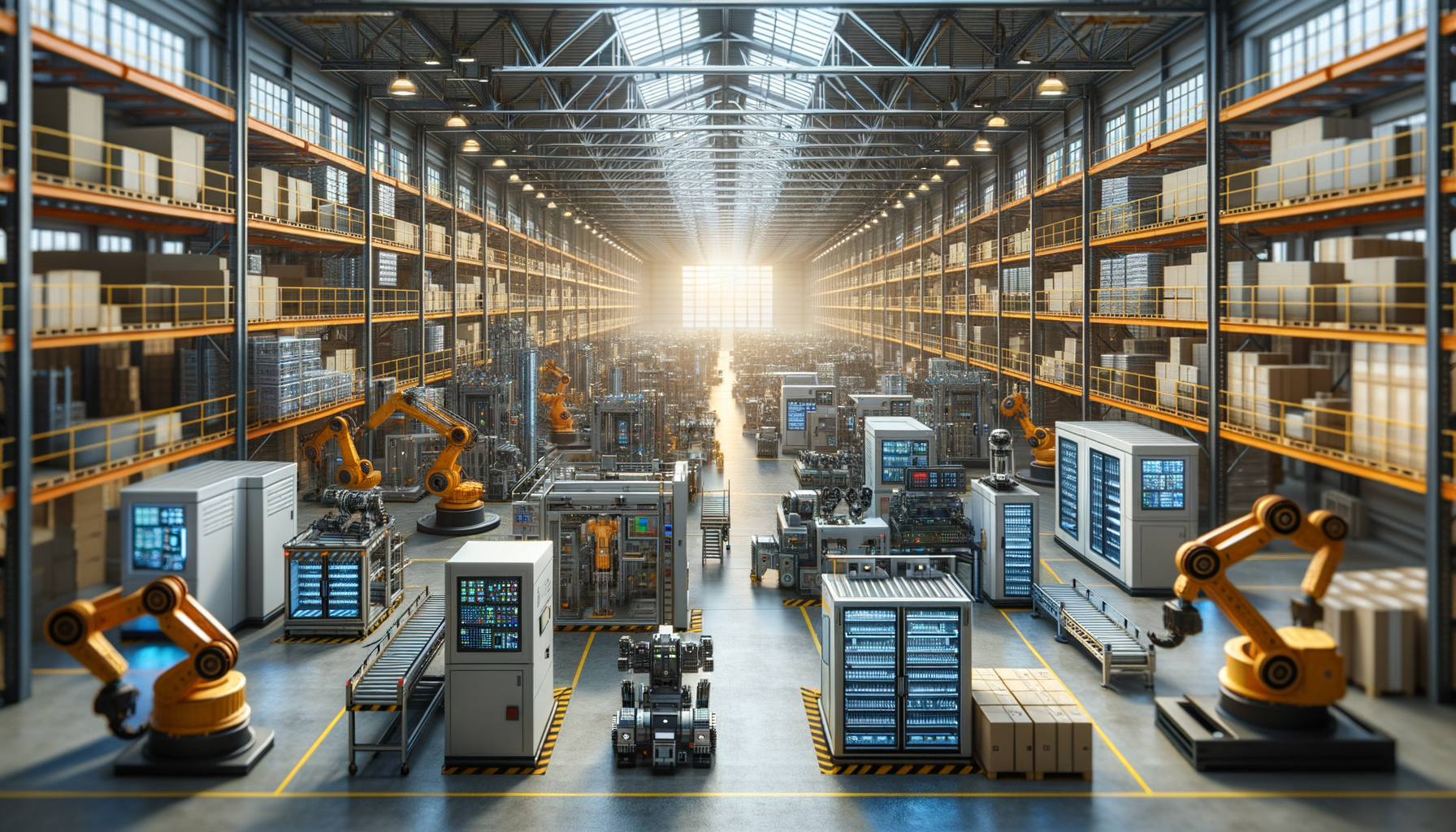Introduction to Industrial Machines in Warehousing
Industrial machines play a pivotal role in the operational efficiency of commercial warehouses. As the backbone of manufacturing and logistics, these machines facilitate the production, packaging, and distribution of goods. The selection of appropriate industrial machines is crucial for enhancing productivity and reducing operational costs in a warehouse setting. Understanding the various types of machines and their specific applications can significantly impact a business’s bottom line.
In the context of commercial warehouses, industrial machines range from simple conveyor belts to complex automated systems. The right choice of equipment can streamline operations, improve accuracy, and ensure safety. This article delves into the different types of industrial machines available, the factors to consider when selecting suppliers, and the technological advancements shaping the future of warehouse operations.
Types of Industrial Machines Used in Warehouses
Warehouses employ a variety of industrial machines to handle different tasks, each designed to meet specific operational needs. Some of the most common machines include:
- Conveyor Systems: Essential for transporting goods within the warehouse, conveyor systems come in various designs, such as belt, roller, and chain conveyors, each suited for different types of products.
- Forklifts: These versatile vehicles are indispensable for moving heavy loads and are available in different models, including electric, diesel, and gas-powered forklifts.
- Palletizers: Used for stacking products onto pallets, palletizers can be manual or automated, enhancing the efficiency of the packing process.
- Automated Guided Vehicles (AGVs): These machines navigate the warehouse autonomously, transporting goods without human intervention, thus increasing efficiency and reducing labor costs.
Each of these machines plays a critical role in the seamless operation of a warehouse, contributing to the overall productivity and efficiency of the supply chain.
Factors to Consider When Choosing Machine Suppliers
Choosing the right supplier for industrial machines is a decision that can significantly affect a warehouse’s performance. Several factors should be considered to ensure the best choice:
- Reputation and Experience: Suppliers with a proven track record and extensive experience in the industry are more likely to provide reliable and high-quality machines.
- After-Sales Support: A supplier that offers robust after-sales support, including maintenance services and spare parts availability, can prevent costly downtime and extend the lifespan of machines.
- Customization Options: Warehouses often have unique requirements, and suppliers that offer customization can provide machines specifically tailored to meet these needs.
- Cost and Financing: While cost is a crucial consideration, it is important to balance upfront expenses with long-term benefits. Suppliers offering flexible financing options can ease the financial burden on businesses.
By carefully evaluating these factors, businesses can make informed decisions that align with their operational goals and budget constraints.
Technological Advancements in Industrial Machines
The industrial machine sector is rapidly evolving, with technological advancements driving significant improvements in efficiency and capability. Key trends include:
- Automation and Robotics: Automation technologies are increasingly being integrated into industrial machines, reducing the need for manual labor and enhancing precision and speed.
- Internet of Things (IoT): IoT-enabled machines provide real-time data and analytics, allowing for predictive maintenance and improved decision-making processes.
- Energy Efficiency: Modern machines are designed to consume less energy, reducing operational costs and minimizing environmental impact.
- Artificial Intelligence (AI): AI technologies are being used to optimize warehouse operations, from inventory management to predictive analytics, further enhancing efficiency.
These advancements are transforming the landscape of industrial machines, offering businesses new opportunities to improve their operations and remain competitive in the market.
Conclusion: Making Informed Decisions for Warehouse Efficiency
In conclusion, selecting the right industrial machines and suppliers is crucial for the efficiency and success of commercial warehouses. By understanding the types of machines available, considering key factors in supplier selection, and staying abreast of technological advancements, businesses can enhance their operational capabilities.
As the industry continues to evolve, warehouses that embrace innovation and make informed decisions will be well-positioned to meet the demands of modern supply chains. Investing in high-quality, reliable machines not only boosts productivity but also ensures long-term success in an increasingly competitive environment.

Leave a Reply